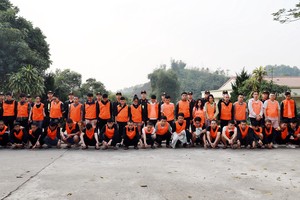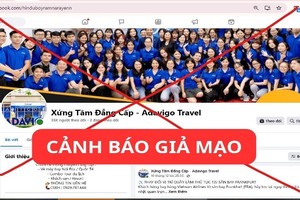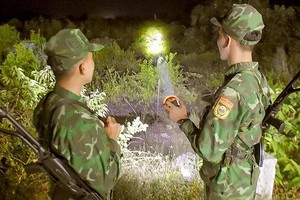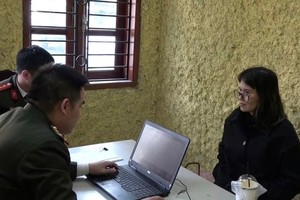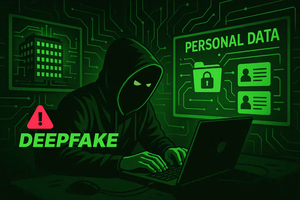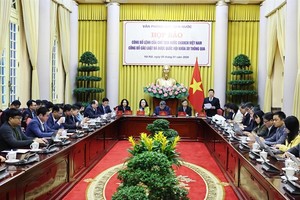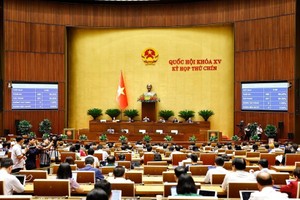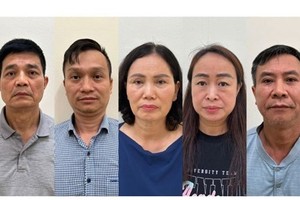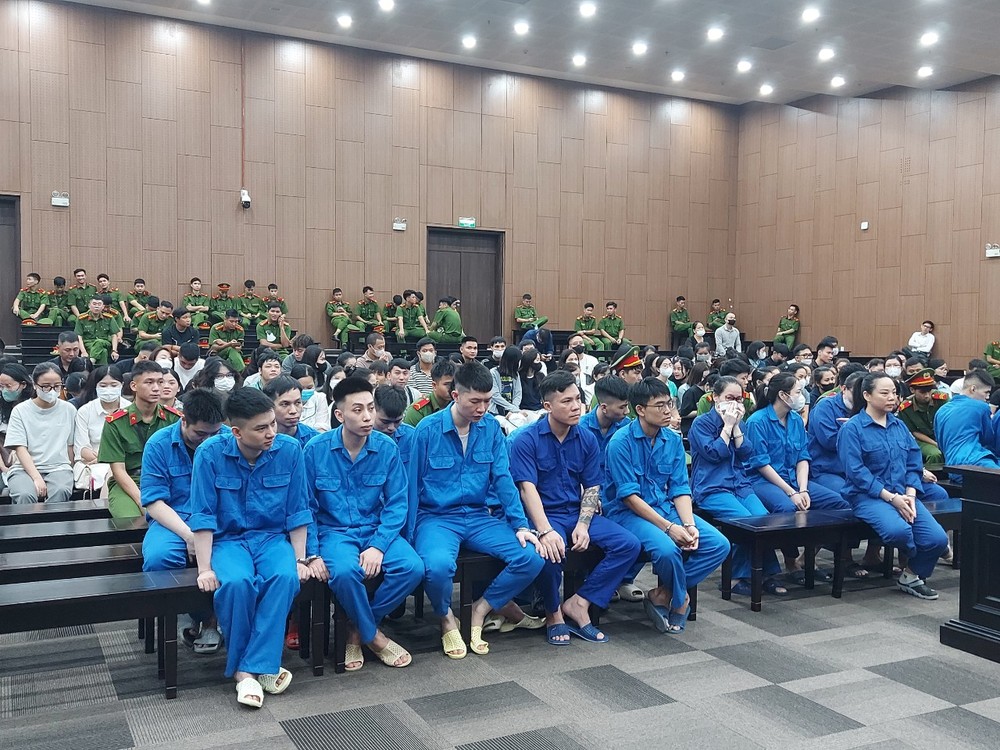
The defendants are being prosecuted for charges including "Usurious lending in civil transactions," "Tax evasion," and "Extortion." The trial is expected to last ten days.chi
This morning, in addition to the 135 defendants, the court also summoned many victims and individuals with related rights and obligations, though most did not appear.
According to the indictment, in October 2017, Li Zhao Qiang, 36, a Chinese national, entered Vietnam and created applications like Cash Vn and Vaynhanhpro, with servers located in Hong Kong (China). These apps offered loans to Vietnamese customers at high interest rates, ranging from VND43,000 to VND60,000 per VND1 million per day. This loan-sharking operation was primarily active in Hanoi and later expanded to neighboring provinces.
To run the operation, Li Zhao Qiang collaborated with and hired Nguyen Quang Vu, 37, living in Ba Dinh District, Hanoi, along with several others, to establish, manage, and operate various companies.
Li Zhao Qiang brought Zhang Min, 38, and Liu Dan Yang, 32, to Vietnam to recruit staff for departments responsible for solicitation, appraisal, debt reminders, and collection. If borrowers delayed their payments, employees at Metag Company and DCS Customer Service Company, managed by Zhang Min, would collect the debts using various phone numbers to send abusive texts, make threatening calls, or edit and post photos of the borrower and their contacts on social media to defame and pressure them.
According to the indictment, the entire operation of the loan-sharking ring was controlled by two parent companies, Newstar Vietnam Technology Co., Ltd., and Viet Star Trading Services Co., Ltd. These companies managed all activities of their subsidiaries, paid employee salaries, and handled the appraisal of all customer loan applications.
The subsidiaries included Metag Vision Development Company and DCS Customer Service Company. These entities were responsible for debt reminders and collections, using the recovered funds to sustain operations and pay staff. Under this model, from January 2019 to May 2022, the defendants engaged in usurious lending, extortion, and tax evasion, illegally profiting over VND732 billion.
The indictment states that the network provided loans to 120,780 customers, totaling nearly VND1.61 trillion at high interest rates, resulting in illegal profits of over VND732 billion. The Vay Nhanh Pro application generated over VND177 billion, the Cash VN application over VND547 billion, and the Ovy application over VND7.5 billion.
Li Zhao Qiang was identified as the mastermind behind the operation, but he is not currently in Vietnam. Consequently, the Hanoi Police Department has issued a domestic arrest warrant and is working with international authorities to issue an international warrant. He will be dealt with upon capture.
To fund the operation, Li Zhao Qiang deposited money into the bank accounts of Viet Star Company, which served as the capital for loans provided through the applications. Each employee was given a desktop computer equipped with software for making free calls to customers, along with a file containing detailed scripts for various scenarios. Employees were required to memorize these scripts.
When a customer agreed to take out a loan, the employee would instruct them to download the application, create an account, and provide personal information, including their address. The verification department would then confirm the information and approve the loan.
To recover the loaned money, the defendants categorized the debts into different groups and used various collection methods. For Group M1 (4-9 days overdue), they would call the borrowers to insult, abuse, and threaten them. For Group M2 (10-17 days overdue), they would post photos of the borrowers on their Facebook accounts or create edited images showing the borrowers in compromising or threatening situations. For Group M3 (18-25 days overdue), the defendants would post these edited images on social media, around the borrower's neighborhood, and even visit the borrower's home to make direct threats.


